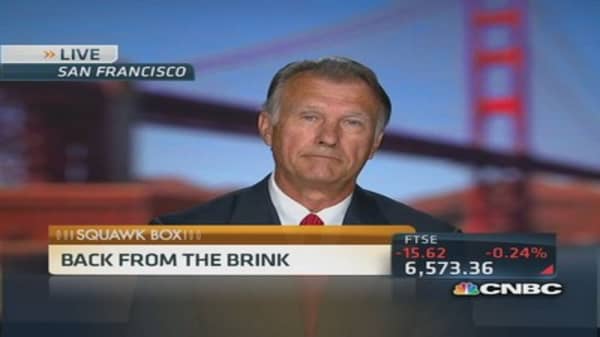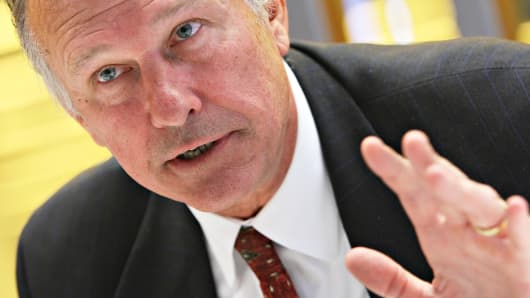Kovacevich stopped short of yelling "liar, liar, pants on fire," but he strongly disputed the notion that financial institutions had any choice whether to take the TARP money or not.
"Oh come on, [Paulson] even says in his book ... I was saying I don't want the money," Kovacevich said Friday. "[Paulson] says he looked over at [Fed Chairman] Ben Bernanke and said that if you don't take this money your primary regulator is going to call you capital deficient on [that] Monday morning." He argued, "Now is that voluntary?"
Five years ago this Sunday, time ran out on troubled Lehman Brothers, forcing it to declare bankruptcy and touching off a series of difficult questions about other distressed financial firms and whether they should be bailed out or left to fail.
Paulson described the crisis on CNBC Friday as "a 100-year storm," the likes of which nobody had ever seen. History seems to favor the claims of Paulson and company that TARP did help prevent a financial collapse.
(Read more: Dislike of Wall Street hasn't faded with crisis)
But like many bankers, Kovacevich said he believes that using a blunt instrument at the time to recapitalize the system was not necessary, and ultimately conveyed the sense that "the entire industry is in deep, deep trouble."
"Everyone understood who needed the money and why," he said—arguing that only those firms in trouble should have been bailed out.
TARP caused the crisis to get "much greater," he added.
"Shortly after TARP, the stock market fell by 40 percent," he continued. "And the banking industry stocks fell by 80 percent. How can anyone say that TARP increased the confidence level of an industry, when its stock market valuation fell by 80 percent."
Paulson said TARP was the best option at the time, and the proof of that is that the "money has come back; all that, plus $32 billion."
—By CNBC's Matthew J. Belvedere; Follow him on Twitter @Matt_SquawkCNBC.





